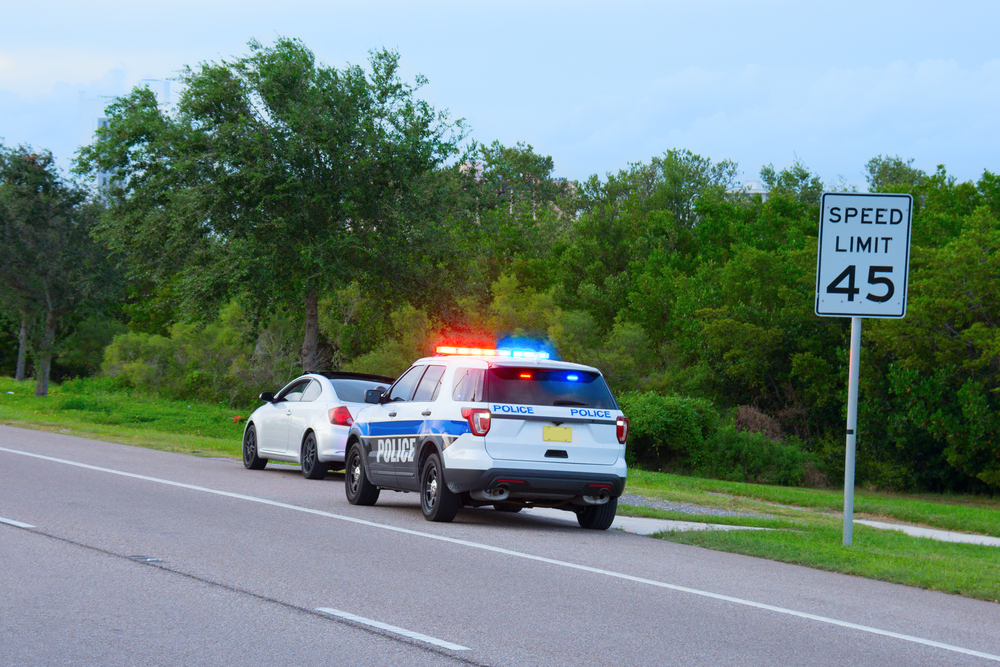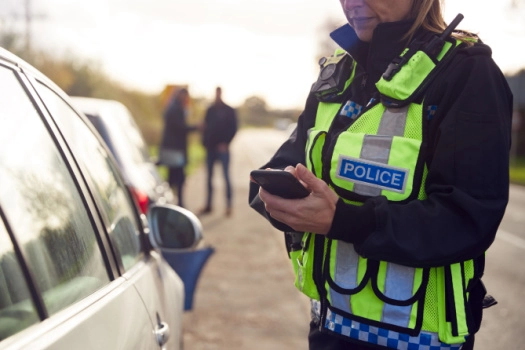
In addition to maintaining your safety and that of loved ones, respecting the laws affecting Georgia motorists can help you keep your auto insurance premiums as low as possible.
The Move Over Law, also known as Title 40-6-16, or simply 40/6, means you can receive some intense legal penalties if you are ticketed.
Here are answers to the basic questions you might have about the 40-6-16 law.
What Is the Regulation?
The law states that highway motorists must move over one lane, if possible, when an emergency or utility vehicle is on or just off the shoulder of the road. We’re referring to any highway vehicle with flashing yellow or red lights. That means police or fire vehicles, ambulances, tow trucks, road work vehicles, or any other car, truck, van, or motorized vehicle with crews at work at the side of the road.
Why Does Georgia Have a Move Over Law?
The idea is to create at least one lane of space so workers and others can safely exit their vehicles to confront stopped drivers, change tires, or otherwise work dangerously close to moving traffic.
The Move Over Law has been on the books in the Peach State since July 2016.
What if It Isn’t Safe to Switch Lanes?
There might be many reasons why switching lanes for parked flashing-light vehicles would be unsafe. There might already be other drivers in those lanes who can’t or won’t make space for you in time. Weather conditions might be such that low visibility would make such a move dangerous. Or perhaps you come upon the flashing lights too late to safely switch lanes, such as right after a curve in the road or upon coming over a rise in a hill.
Regardless of the situation, the law states that you must slow down below the posted speed limit and be prepared to stop until you pass the flashing-light vehicles.
Why Is It Also Known as the 40-6-16 Law?
This reference represents the section where the regulation is written on the Official Code of Georgia Annotated (O.C.G.A.), the state’s law book. This name is shortened even further to simply the 40/6.
Under any of those names, we’re still talking about what is most commonly known as the Move Over Law. Under any of those names, we’re still talking about the Move Over Law. \

What if I Ignore the Move Over Law?
That could be a very poor decision. The financial penalty for refusing to switch lanes or slow down if a lane switch would be unsafe is as much as $500, even for a first offense. In addition, you’ll get three points on your driver’s record. Remember that an accumulation of 15 points over 24 months will result in an automatic license suspension.
Additionally, a stop by a police officer could result in more charges if drinking, drug consumption, or other illegal or reckless activity is charged. Depending on the charges pressed, this could result in high lawyer costs, heftier fines, and even jail time or license suspension.
Finally, the fine or other penalties and points to your driver’s record will be reported to your auto insurance company. This action could result in an increased cost of your coverage. Your insurer could even refuse to continue coverage or boost your rates as a high-risk driver.
It’s not worth it. When you see flashing lights on vehicles on the side of the highway, leave a lane’s gap, if possible, or slow down below the posted speed limit. You’ll keep everyone safer and avoid risks to your own driver’s record and finances.